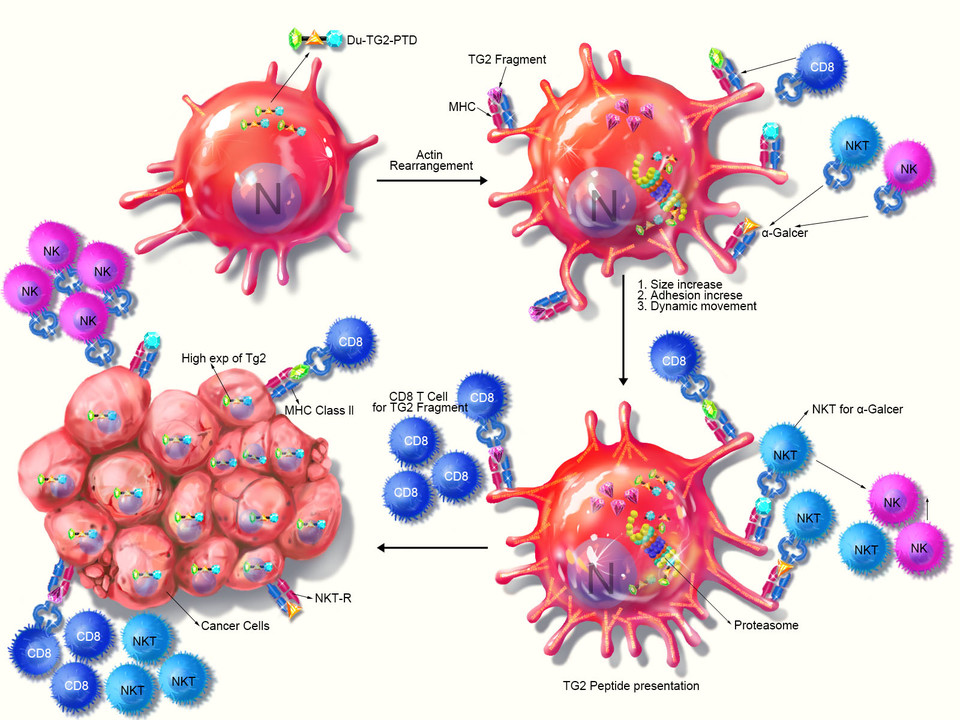Researchers at the Gwangju Institute of Science and Technology have developed next-generation anticancer immune cell therapy using a star-shaped immune cell called the dendritic cell, which reinvigorates bodily immune responses, GIST said Thursday.
The study overcame the disadvantage of introducing biometrics using existing viruses, such as high cost and low efficiency, and turned biometrics into drugs to be introduced to cells easily. The new development is expected to double the effects of anticancer treatment as it can handle dendritic cells in cancer patients with the weakened immune system.
If antigens flow into a human body or cancer cells grow, dendritic cells capture and deliver them to immune T cells. The mobility of dendritic cells and their combination with immune T cells are adjusted by the actin cytoskeleton, which plays the role of bone in cells.

The research team, led by Professor Jun Chang-duk, has identified that Transgelin-2, a protein controlling actin’s role, is also involved not only in the vitality of various immune cells but also in the cell mobility, through various researches for several years.
The team used the new finding to recover the dendritic cell’s function by inducing re-expression of Transgelin-2 using mice models. It also proved that the tumor occurrence was effectively suppressed by more than 50 percent compared to the control group.
“The study is the first case to show improvement on anticancer treatment through inner substances, using dendritic cells,” Professor Jun said. “We will establish the new-generation anticancer vaccine based on dendritic cells.”
The study was published in the online edition of the Journal of Hematology & Oncology on March 17.

